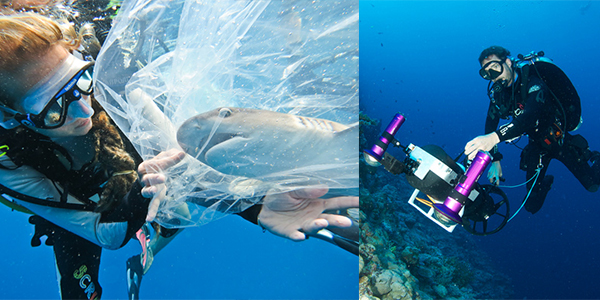Oceanography Careers
[one_half][ads1][/one_half]Oceanography is a branch of science, which deals with scientific study of all aspects of Oceans, their contents, their boundaries and their elements. Oceanography Careers is an exciting and interesting field which offers the opportunity to be involved with a variety of scientific disciplines and lifelong learning.
Oceanography Careers apply the basic Science principles and theories to study the world’s coastal waters and oceans. One may work in any of the several fields, depending upon specialization, such as Geological oceanography, marine biology, Chemical oceanography. Oceanographers study circulation and motion of the ocean waters, & their chemical and physical properties, how these properties would affect weather, climate and coastal areas.
Oceanography Careers Job Profile
This is basically a research oriented profession, Hence Oceanographers may spend long working hours at the sea and all the complications and challenges related to the science. Hence a career in this profession is a challenging one & it is really a promising profession for those who like to venture into the unknown and holds an intrinsic curiosity. The work of an Oceanographer would include conducting surveys, examining and analyzing the data for long hours, collecting samples, etc.
The work of an Oceanographer requires the scientific knowledge of physics, geology, geophysics, biology, chemistry, Mathematics and engineering sciences.
Oceanography covers a wide range of topic, such as
- Ocean currents.
- Waves.
- Ecosystem dynamics.
- Plate tectonics.
- Geology of the sea floor.
- Geophysical fluid dynamics..
- Marine organisms
Skills Required
- They should possess excellent computer operating skills to catalog, analyse and research collected data.
- Apart from basic computer skills, they must be completely be acquainted with advanced computer techniques like remote sensing, digital mapping & computer modelling, data analysis, global positioning systems.
- Excellent communication skills are very necessary.
- Strong interpersonal skills are also very essential and useful.
- They work well within a team set up, i.e good team-working skills.
- One must be flexible in nature to handle sudden changes in schedules, tasks and even weather (storms).
- One must be adaptable to living life at or near sea.
- Must be able to pay meticulous attention to detail.
- Should possess quick decisiveness.
- Must have excellent IT skills.
- Analytical and problem solving skills.
- Should be having a logical and independent mind
Salary Packages
- With a Master’s degree at hand, IN the Govt. sector, An Oceanographer can earn anywhere between 20,000 INR to 25,000 INR a month at the beginning.
- An Oceanographer can earn upwards of 40,000 INR a month, after getting a PhD and a few years of experience, This is for the Govt. sector.
- For those working in Private sectors, The Salaries are pretty much higher than those mentioned above.
Job Prospects
A career in Oceanography is very rewarding as well as challenging. In Public & Private sectors, There are fairly large employment opportunities for Meteorologists / Marine Geologists / Geographers / Oceanographers.
Some of the companies one can find jobs in India as an Oceanographer are
- Indian Oil Corporation.
- Dept. of Oceanography.
- Meteorological survey of India.
- Geological survey of India.
- Coal India.
- Oil & natural gas corporation.
- Mineral authority of India.
- Hindustan Zinc.
There are various Job prospects for various specializations of Oceanography
- Geological Oceanography.
- Marine Oceanography.
- Chemical Oceanography.
- Physical Oceanography.
- Marine Archaeologist.
- Marine & ocean engineers.
- Marine policy experts.
How Do I get there ?
- The Candidate must have attained an age of 17 years.
- He / she must have passed 12th Science stream with Physics, Chemistry, Mathematics.
- Most of the institutes and colleges offer postgraduate course in Marine biology / Oceanography.
- The minimum educational qualification for the postgraduate course is a Bachelor’s in Science degree (B.Sc) in Earth science / Fishery science / geology / Agriculture / Microbiology / Applied Sciences / Botany / Chemistry / Zoology or in any other equivalent disciplines.




